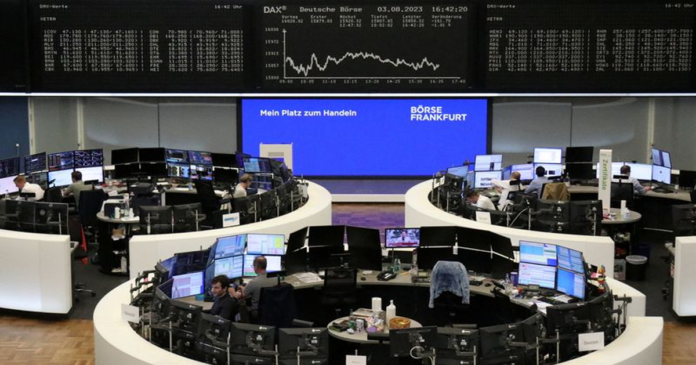Following a three-day decline, European equities stabilised on Friday as optimism over some positive profits and U.S. jobs data demonstrating resilience in the world’s largest economy overshadowed concerns about sluggish euro zone growth.
European stocks end higher: The STOXX 600 index for all of Europe gained 0.3% after losing over 3% during the previous three sessions.
According to US data, the economy created fewer jobs than anticipated in July, but strong pay growth and a fall in the unemployment rate indicated that labour market conditions remained tight.
The information, according to analysts, raised optimism that the Federal Reserve would soon stop its monetary tightening, allowing for a “soft landing” for the American economy.
After the release of the payroll figures, Wall Street indexes also increased as a positive projection from Amazon.com Inc. offset a negative sales forecast from iPhone maker Apple.
The U.S. economy’s resiliency and expectations that the major central banks are nearing the conclusion of their cycle of monetary tightening have propelled stock markets on both sides of the Atlantic to gains in recent weeks.
The STOXX 600, however, lost 2.4% for the week after posting gains for three consecutive weeks due to a combination of disappointing economic data from Europe and Asia and the unexpected reduction of the U.S. credit rating.
Stuart Cole, chief macro economist at Equiti Capital, stated that “(Sentiment for Europe) is looking a little less rosy than just a week or so ago.”
“Economic Hard Landing Concerns Shift to EU (UK) as Earnings in Europe Show Mixed Results”
The EU (particularly the UK) are now at the core of fears of an economic hard landing, which have significantly shifted away from the US.
Earnings in Europe were inconsistent. Strong insurance and consumer finance performance helped French bank Credit Agricole post positive quarterly earnings, sending the stock up 6.1%.
Italian state-owned bank Monte dei Paschi di Siena had a 2.8% increase as a result of its second quarter earnings beating expectations.
The largest advertising group in the world, WPP, fell 3.4% after revising its full-year like-for-like growth projection.
With the largest real estate business in Germany reporting a 2 billion euro ($2.19 billion) loss for the second quarter and writing down the value of its properties by 3 billion euros, Vonovia fell 1.3%.
Commerzbank dropped 2.6% as the German lender lowered its projection for commission income and increased its expense expectation.
According to Refinitiv IBES statistics, more over half of the STOXX 600 businesses that have reported thus far have outperformed analysts’ earnings forecasts.

